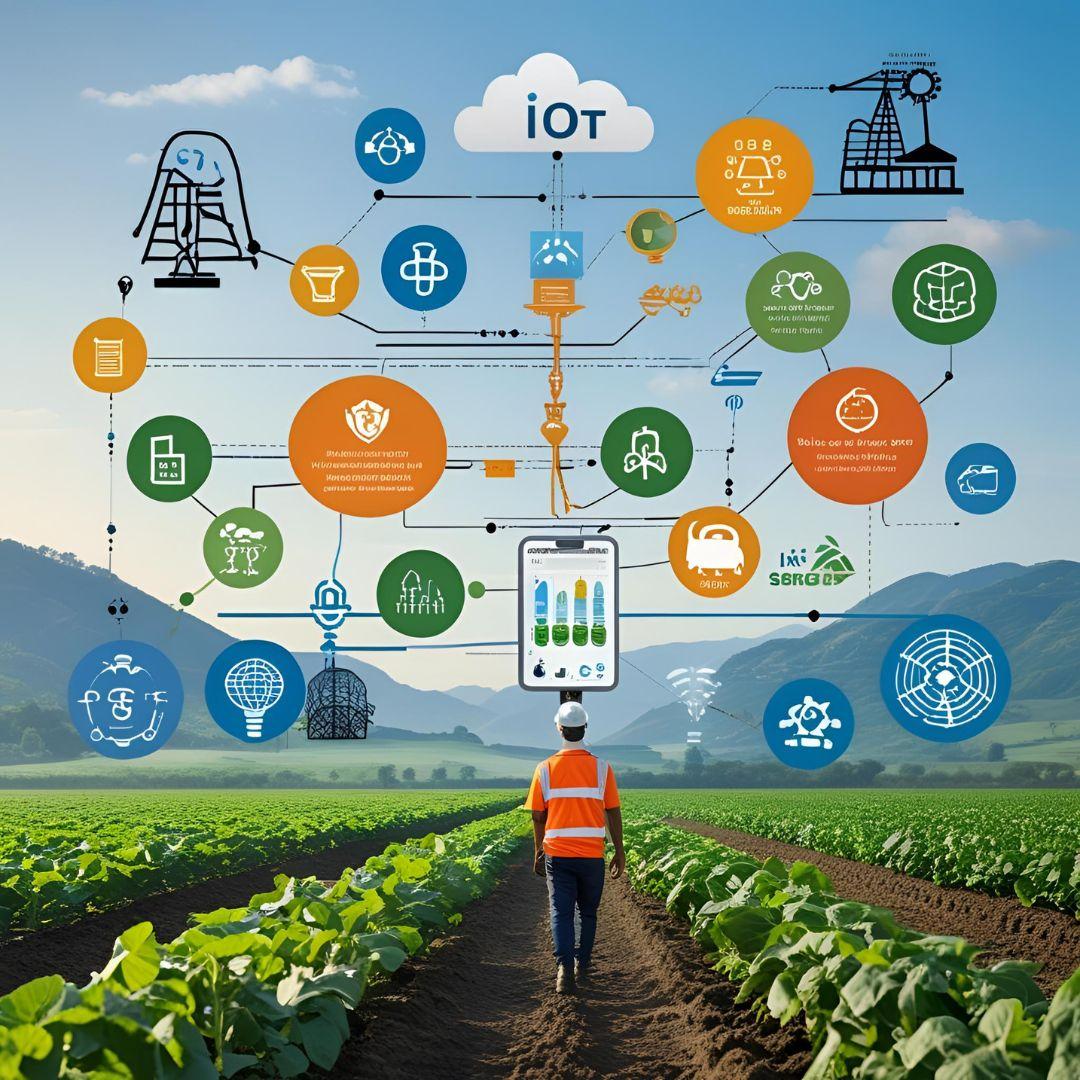Inquire
Internet of Things-Based Smart Agriculture

The agriculture industry is undergoing a revolutionary transformation thanks to the Internet of Things (IoT). By connecting sensors, devices, and analytics platforms, IoT enables precision farming techniques that optimize resource use, increase yields, and reduce environmental impact. For startups focused on agritech, IoT-based smart agriculture offers immense opportunities to develop innovative solutions that address global food security and sustainability challenges.
At its core, IoT in agriculture involves deploying a network of interconnected sensors across farmland. These sensors collect real-time data on soil moisture, temperature, humidity, nutrient levels, and crop health. The data is then transmitted via wireless networks to cloud-based platforms where advanced analytics and AI algorithms process the information, providing actionable insights to farmers.
One of the most significant benefits of IoT in agriculture is precision irrigation. Instead of relying on traditional watering schedules, smart irrigation systems use soil moisture sensors and weather forecasts to apply water only when and where it is needed. This reduces water consumption significantly while ensuring crops receive optimal hydration. Similarly, nutrient sensors help apply fertilizers precisely, avoiding overuse that can harm soil and water quality.
IoT also enables pest and disease monitoring through image sensors and environmental data. Early detection of infestations or infections allows farmers to take timely preventive measures, minimizing crop loss and reducing the need for chemical pesticides. Drones equipped with IoT sensors further enhance monitoring capabilities by providing aerial imaging and mapping, allowing for comprehensive field assessment.
Beyond field management, IoT can improve supply chain efficiency. Sensors track the conditions of harvested crops during transportation and storage, ensuring optimal temperature and humidity to maintain freshness. This reduces spoilage and waste, directly benefiting farmers’ profitability and consumers’ quality.
For startups, developing IoT-based smart agriculture products requires integrating hardware, software, and data analytics expertise. Low-power wide-area networks (LPWAN) like LoRaWAN and NB-IoT are popular choices for connecting devices across large agricultural areas due to their long range and low energy consumption. Cloud platforms offer scalable infrastructure for processing large volumes of sensor data and hosting machine learning models that generate predictive insights.
Challenges remain, including the initial cost of sensor deployment, data privacy concerns, and the need for user-friendly interfaces suitable for farmers with varying technical skills. Startups must design solutions that are affordable, easy to use, and robust enough to withstand harsh outdoor conditions.
Government initiatives and subsidies supporting digital agriculture also create a favorable environment for IoT startups. Partnerships with agricultural cooperatives, research institutions, and local communities can accelerate adoption and provide valuable feedback for product refinement.
Conclusion:
IoT-based smart agriculture is redefining farming by enabling data-driven decisions that optimize resource use and improve crop outcomes. Startups that leverage sensor networks, cloud analytics, and AI to build integrated smart farming solutions are well-positioned to address the urgent challenges of food production and environmental sustainability. As technology becomes more accessible and affordable, IoT is set to become a fundamental pillar of modern agriculture, empowering farmers worldwide to farm smarter and more sustainably.
- Managerial Effectiveness!
- Future and Predictions
- Motivatinal / Inspiring
- Other
- Entrepreneurship
- Mentoring & Guidance
- Marketing
- Networking
- HR & Recruiting
- Literature
- Shopping
- Career Management & Advancement


 SkillClick
SkillClick